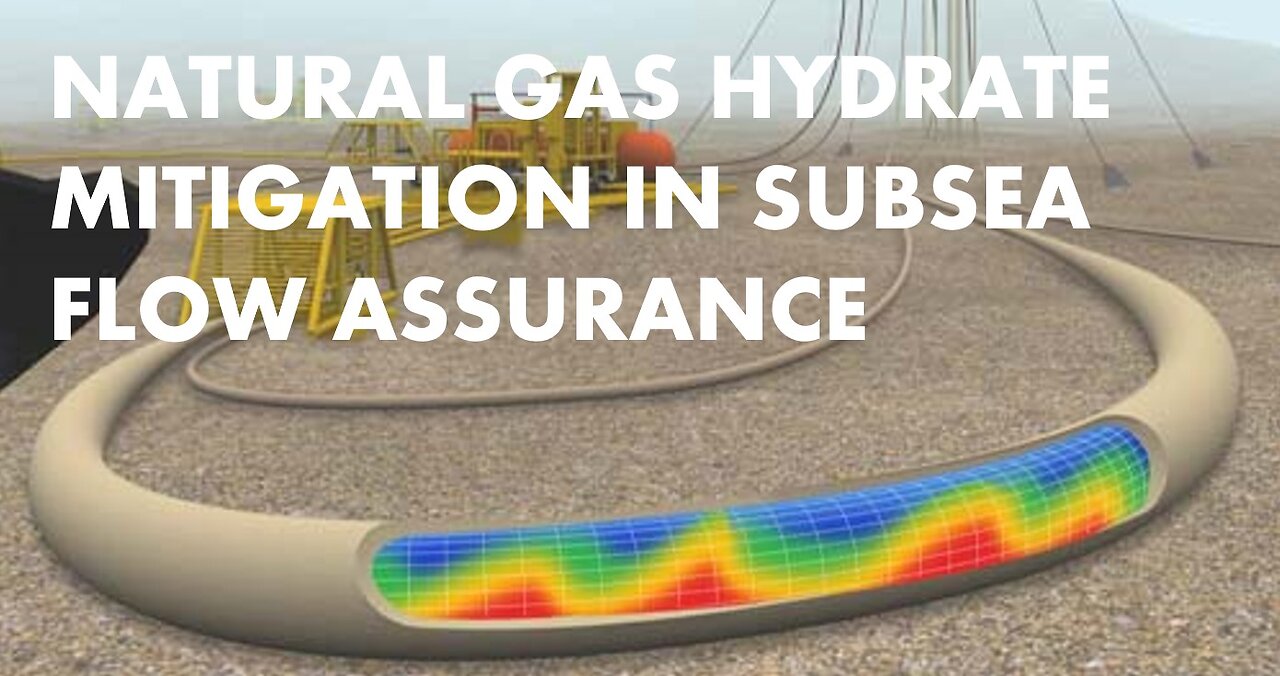Premium Only Content

Natural Gas Hydrate Mitigation in Subsea Flow Assurance
Natural gas hydrate formation in subsea pipelines is a major problem in the upstream petroleum industry. Gas hydrates are formed at high pressures and low temperatures when water lattice with cavities trap gas molecules such as methane. Hydrates are solid deposits that clog subsea flowlinesand increase pressure drops across the pipeline, and under severe conditions can completely stop flow through pipelines resulting in tremendous production losses. This course briefly explain the structure and mechanism of gas hydrate formation and provide the audience with an overview of various gas hydrate prevention and mitigation technology used in the upstream petroleum industry. The manuscript discusses important methods used in the industry, such as chemical injection, depressurization, thermal stimulation, and mechanical removal by summarizing work from over hundred reports. Relative merits and demerits of these methods are also discussed. In addition, some interesting research results are also reviewed. This course conclude by providing a tables howing the relative technology readiness level for each method. Also, potential areas of future research are discussed
For full videos you can visit this link :
https://drive.google.com/file/d/1cRTRO3N_O9znpojv5rv5zgCIrO1ImZS2/view?usp=sharing
and you will be directed to a google drive link where you can download all files of this course
https://drive.google.com/file/d/13jgKJSJS6Ro1YU-ytUiFLe1_GMeGnzpZ/view?usp=sharing
-

Misha Petrov
47 minutes agoReacting to YOUR Experiences With Leftist MELTDOWNS Over Trump’s Victory
4 -
 15:33
15:33
Silver Dragons
1 hour agoBullion Dealer Reveals How to Avoid "INFLATION TAX" With Silver and Gold
74 -
 20:53
20:53
SLS - Street League Skateboarding
3 days agoGold Medals, World Class Food, Night life & more - Get Lost: Tokyo
95.2K9 -
 LIVE
LIVE
Yefune Kenizi's [PC] Gaming
4 hours ago $0.62 earnedGTAO - Heists Week: Friday w/ GamingChad
173 watching -
 1:23:02
1:23:02
Baked Linguini's Home Channel
2 hours agoToads Wearing Sunglasses - Let's Play Battletoads in Battlemaniacs
9.44K2 -
 DVR
DVR
Akademiks
6 hours agoDiddy Last Stance! Bail Hearing Live! Lil Durk Case update! Young Thug not getting back his SH*T?
66.3K15 -
 1:03:01
1:03:01
In The Litter Box w/ Jewels & Catturd
22 hours agoLegacy media CANNOT be trusted | In the Litter Box w/ Jewels & Catturd – Ep. 697 – 11/22/2024
47.8K23 -
 1:22:02
1:22:02
The Quartering
4 hours agoTrump BEATS NYC Felony Charges, New Woke Car Ads, WW3 Updates & More
75K46 -
 10:03
10:03
Colion Noir
4 hours agoKimber's First "True" Double Stack 1911 Isn't Just A Gun It's A Statement
20.7K13 -
 1:46:28
1:46:28
vivafrei
8 hours agoKeir Starmer Goes Full Tyrant! Canada Goes Full Gestapo! Trump Picks & MORE! Viva Frei Live
77.5K41